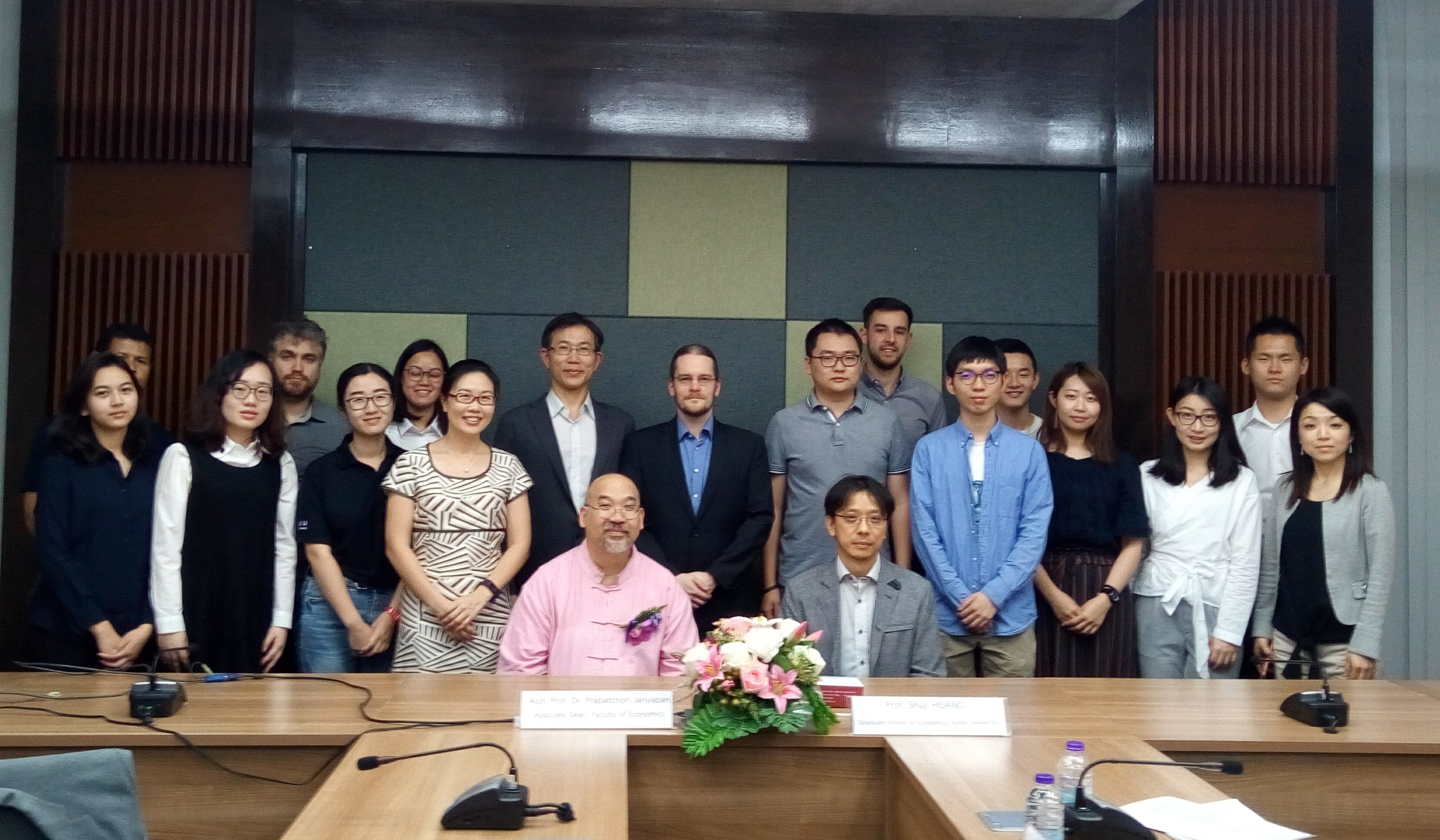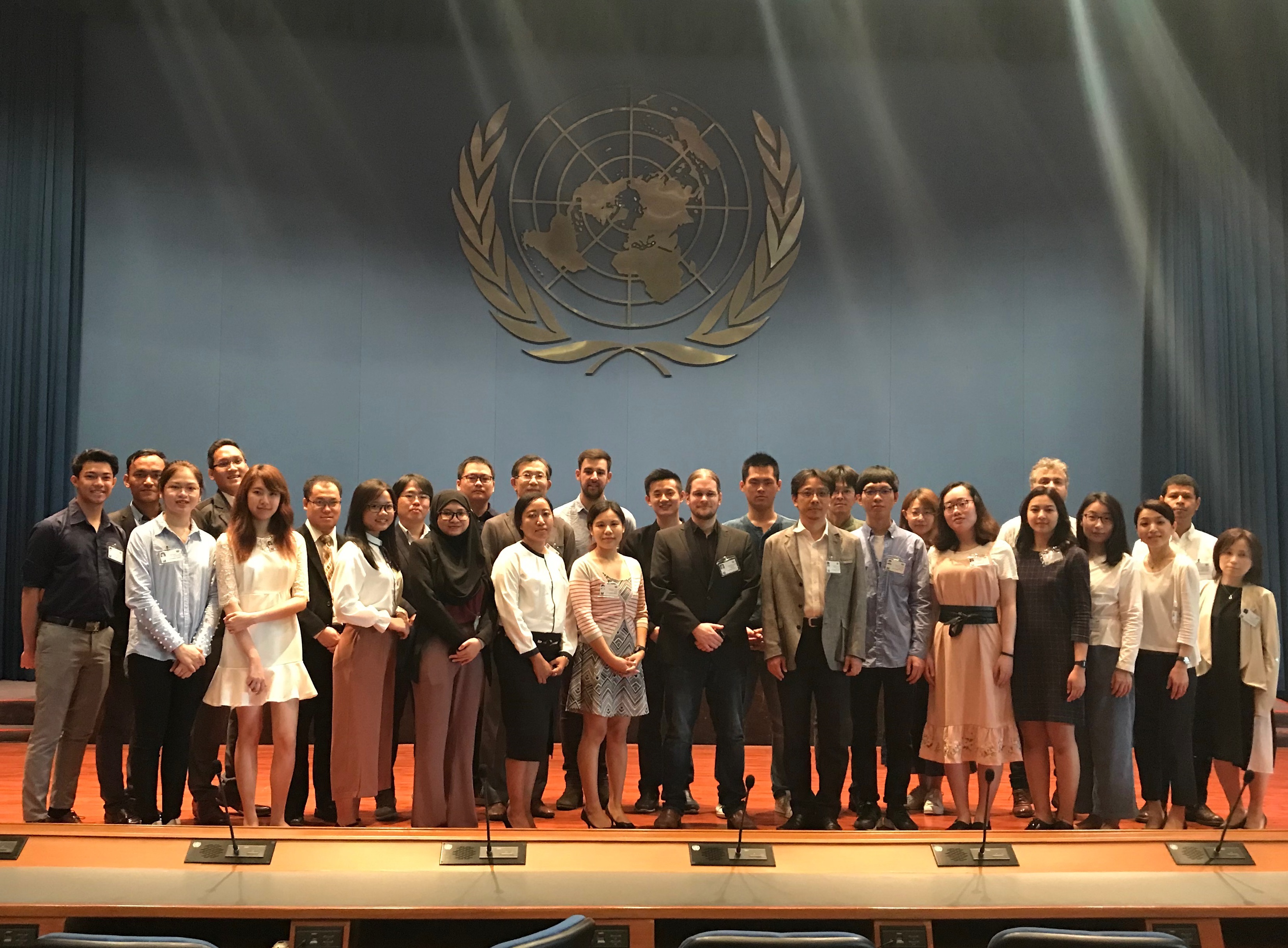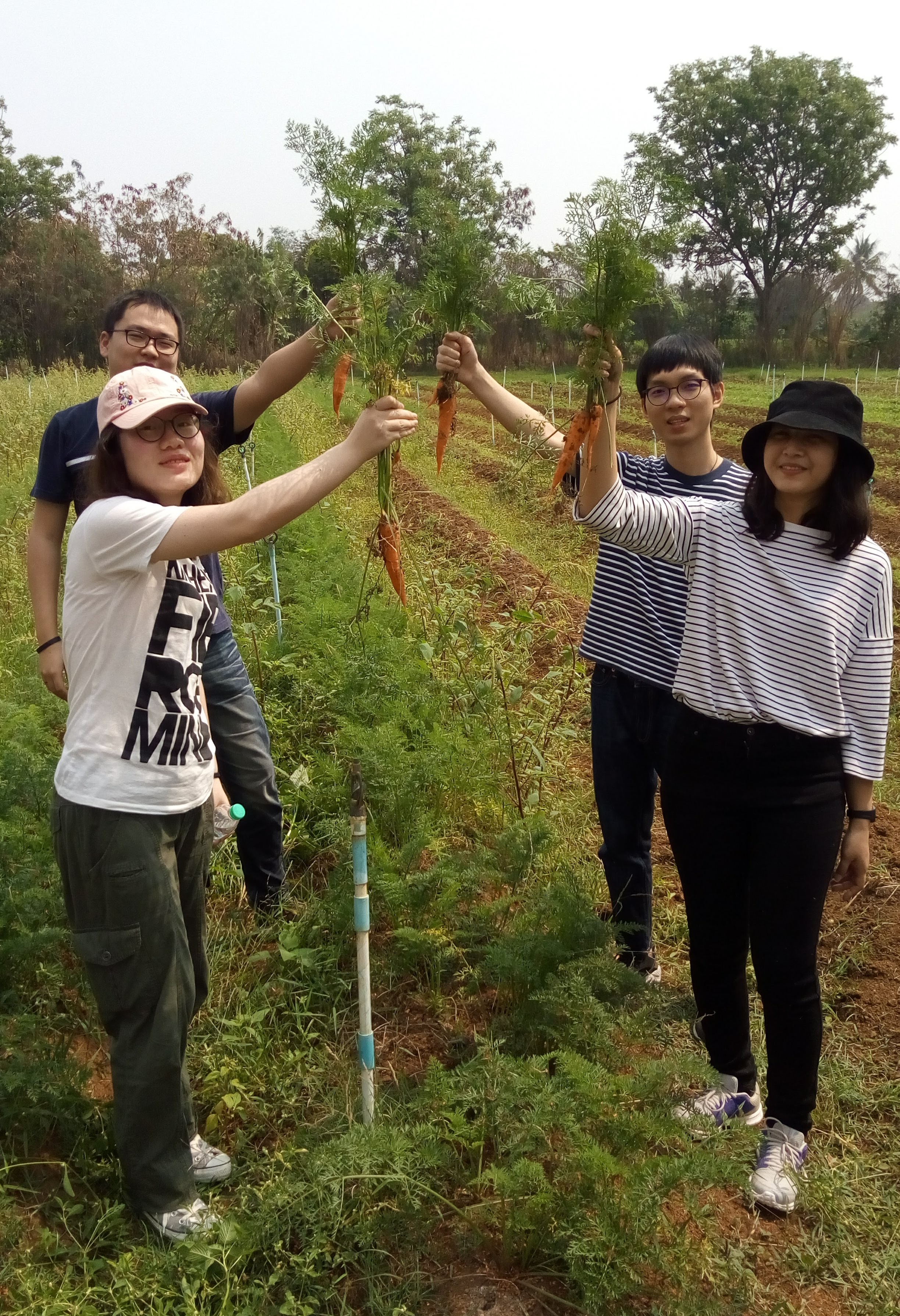Field Research in Thailand 2018
February 11th to 20th, 2018
In February 2018, the Graduate School of Economics organized a 9-day field trip to Thailand for 12 of its students; nine from the Graduate School of Economics’ EA programme, two students from the Graduate School of Economics’ regular programme, and one undergraduate student from the Faculty of Economics. The purpose of the trip was for students to see first-hand the current economic and social issues in Thailand and other ASEAN countries, and to exchange with students studying at Thai universities. The trip covered three cities: Chiang Mai (3 days), Bangkok (4 days) and Khao Yai (2 days).

Workshop participants at Chiang Mai University
Chiang Mai. At the Regional Center for Social Science and Sustainable Development, Prof Chayan Vaddhanaphuti, the Center’s director, gave an inspiring lecture on the impacts of regional integration on local communities. Then, at the Tribal Museum, students could hear about the challenges facing minority tribes. Next, at the Royal Project Development Center in Nong Hoi, students were pleased to learn how the minority tribes are receiving support from the Center. Finally, at the Department of International Trade Department, students could understand how the Department is helping local artisans and entrepreneurs export their products.

Kyoto University’s students and faculty members, and Thammasat University’s Master of Arts in Pacific Studies (MAPS) students at the United Nations Economic and Social Commission for Asia and the Pacific (UN ESCAP)’s headquarters in Bangkok
Bangkok. Together with Thammasat University’s Master of Arts in Pacific Studies (MAPS) graduate students, Kyoto University students attended a stimulating lecture given by the Deputy Director of Thammasat Institute of Area Studies, Prof Chanin Mephokee, about the Thai economy and the recent economic development trends in ASEAN countries. The same group of students also attended lectures given by United Nation agencies’ officials such as the Economic and Social Commission for Asia and the Pacific (ESCAP) and the United Nations Industrial Development Organization (UNIDO). These talks allowed the students to better understand the roles and history of the UN and ESCAP, as well as trade and regional integration in Asia, and the roles of foreign direct investment in economic development. Students also learned about UNIDO’s activities in ASEAN countries related to sustainable industrial development and received career information within the UN system.

Students harvesting carrots at Harmony Life’s organic farm located in Khao Yai
Khao Yai. At the vineyard and winery in GranMonte and Harmony life organic farm, students saw how wine is produced in the Asoke valley, known for its unique environmental setting, and also the current situation of organic farming in Thailand.
As for student exchange part of the trip, Kyoto University students participated in two workshops held at and organized by Chiang Mai University and Chulalongkorn University. It was an opportunity for students to present their current research project and gather feedback to improve their work. Twenty-one students from four universities presented their current research projects. While presentations covered a wide variety of topics, this allowed students to practice explaining their research to an audience outside their specialty and to receive new insights and perspectives on their research.
Overall, students could learn about the economic and social issues on the ground by listening to experts who are directly involved in them and seeing how the various programs and projects operate to help solve issues. The lectures, field visits and exchange opportunities allowed students to think critically about the issues from various perspectives and to consider various aspects, i.e. political, economic and social.
Many thanks to everyone who made this trip a great learning experience, especially our hosts at Chiang Mai University’s Faculty of Economics, Thammasat University’s Institute of Area Studies (TIARA) and Chulalongkorn University’s Faculty of Economics.